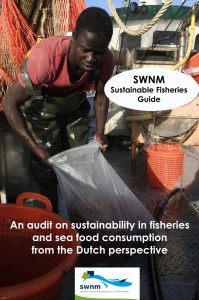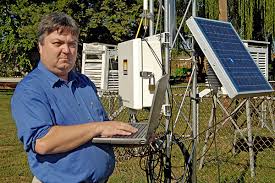 The Foundation for Scientific Nature and Environmental Policy (SWNM) created the new Sustainable Fisheries Guide: an audit on sustainability in fisheries and fish consumption from the Dutch Perspective, based on the scientific literature instead of opinions by NGO’s, commercial interests and often contradicting policy agendas by different government advisory bodies.
The Foundation for Scientific Nature and Environmental Policy (SWNM) created the new Sustainable Fisheries Guide: an audit on sustainability in fisheries and fish consumption from the Dutch Perspective, based on the scientific literature instead of opinions by NGO’s, commercial interests and often contradicting policy agendas by different government advisory bodies.
The concept of sustainability in fisheries is- just like in ‘green’ energy- surrounded by many agenda driven opinions and commercial interests- hot air- which blur scientific facts, data and research on the state of the world fisheries, progress that has been made, and remaining problems to be solved.
Fish stocks are resilient, but many issues remain
Key message of the Guide is that NGO’s and allied scientists like Daniel Pauly spread an unnecessary pessimistic picture on the state of world fisheries, that cannot be justified by data, and their concepts are often based on flawed science or dramatic statements that are taken out of context for media effect. Many stocks are recovering from a state of overfishing. Marine ecoystems are on average more resilient than terrestrial ecosystems. Nevertheless, sustainability of fisheries varies highly per region, and per target species.
Enclosures and Common Fisheries Policy
One key factor for success – apart from the rigidness with which scientific advice of fisheries biologists is followed- is the ability for nations to block foreign vessels from their fishing grounds to protect stocks. The UNCLOS-treaty in 1981 aimed for this objective, thus ending the so called ’tragedy of the commons’ with Exclusive Economic Zones, which would function as enclosures. However, in the EU this key factor was thrown over board with the adoption of the Common Fisheries Policy in 1987.
Ecolabels have relatively little value
Ecolabels like MSC have a value in tracing the origins of fish products in a global market. There is no evidence that MSC stimulates sustainable fisheries, which depends mostly on the success of local fisheries policies by governments, not by private standards that are pushed on market parties. There is evidence that using MSC as silver bullet-standard can block sustainable sea food products from markets.
According to the Foundation for Scientific Nature and Environmental Policy (SWNM) fishermen should ally themselves with data driven and objective scientists and consult the scientific literature for advice, instead of NGO’s, governmental advisory bodies and other agenda-driven ‘experts’. This opinion is also shared by Barrie Deas, chief executive of the National Federation of Fishermen’s Organisations (NFFO) in England.
Clarity to the debate
The new guide it’s main objective is to deliver clarity and a political neutral stance in the debate on sustainability. Therefore it first deals with the simple question: what does sustainability mean, which politically neutral definitions can be used, and in the remaining questions it deals with popular issues (in media) surrounding the debate on sustainability.
1. What is sustainability?
2. What does sustainability mean in fisheries management?
3. What is Maximum Sustainable Yield?
4. Are the oceans empty in 2048?
5. Is the popular ‘fishing down the foodweb’-concept a valid description of reality?
6. Are fisheries always the most important influence on the health of fish stocks?
7. Is fish from aquaculture more sustainable than wild caught North Sea white fish?
8. What is ecological sustainability in fisheries perspective?
9. Is the MSC-label the only standard for sustainable fishing?
10. Are consumerguides on sea food by NGO’s based on scientific criteria?
11. How sustainable is Dutch Sea Food consumption?
As a brief audit on the literature the Guide is designed to bring clarity to the debate. It is not the final answer, and thus is open to informed criticism to improve it’s contents.






Geef een reactie